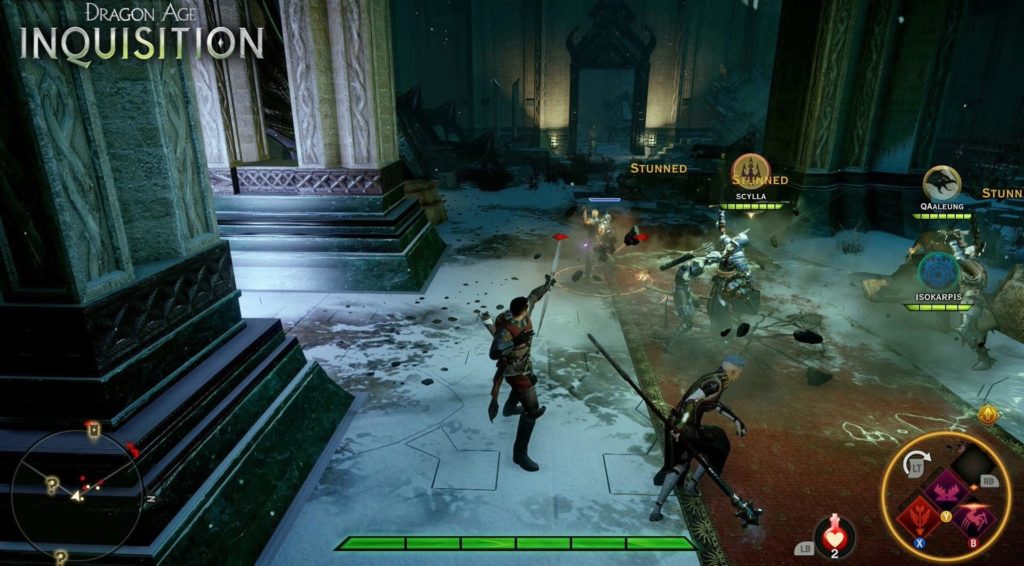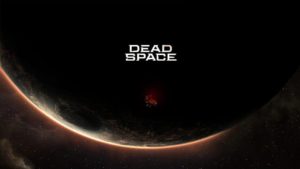
With excitement levels for Anthem practically multiplying every week, it seems Bioware is finally back in the cross-console spotlight. But many fans of the developer’s veteran franchises are no doubt still feeling that seemingly unscratchable itch to get their hands on the RPG-experts’ updated vision for the Mass Effect and Dragon Age universes.
In the company’s midsummer update, Bioware head Casey Hudson talked a lot about the studio’s new co-op shooter IP, E3 action favourite Anthem. After thanking fans for their support and enthusiasm, Hudson explained how the team are striving to imbue narrative ‘agency’ into the game’s multiplayer environment. The explanation is brief but promised more answers down the road, particularly at their PAX panel in Seattle later this month.
However, buried near the bottom of the update was a rather interesting little paragraph. After a brief mention of some exciting new features and updates coming to Star Wars: The Old Republic, Hudson stated the following:
“And yes – we hear loud and clear the interest in BioWare doing more Dragon Age and Mass Effect, so rest assured that we have some teams hidden away working on some secret stuff that I think you’ll really like – we’re just not ready to talk about any of it for a little while…”
We’ve known for some time that a new Dragon Age title is on the agenda. Details are unsurprisingly slim, with Hudson admitting last month they are still ‘figuring out what it might look like’. Since the world of Dragon Age is more than diverse enough to accommodate Bioware’s exceptional narrative ingenuity, the uncertainties still surrounding the project no doubt arise from a gameplay angle. Dragon Age II and Inquisition were both stellar outings but neither proceeded to garner anything close to the levels of admiration that Origins, the studio’s first DA release, attracted. This was predominantly due to heavy changes the developer made to how gameplay, and in particular combat, was handled.

While Bioware insisted that the game experience was improved by giving the player more to do, many fans remained adamant that Origin‘s classic, simplistic, KOTOR-esque combat system was by far superior. Hopefully Dragon Age 4 (or whatever it’s title might be) will be able to strike that essential balance between the ‘modernised cinematic’ and the ‘retro-RPG classic’.
As for the studio’s beloved space-opera saga, however, this recent statement appears to be the first (sort-of)official confirmation that more Mass Effect content is actually in the works. While talking about the prospects of future projects to Game Informer, Casey Hudson was passionate about always wanting to go back to Mass Effect, calling it ‘his baby’. No mention of actual plans or even tangible ideas was ever uttered, however, so it’s fantastic to see some form of implication in the statement above (however vague it may be).
How should Mass Effect move forward?
Andromeda was without question a supremely, nigh-on inexcusably, flawed game. That being said, it was still lightyears away from anything resembling a categorically ‘bad’ game. It had its merits and it had its shortcomings but the game’s only massive flaw, or at least the only one most people seemed to judge the complete experience on, was the fact that it didn’t come close to living up to its heritage.
I’m not saying this was an irrational perspective to take – in reality considering how brilliant and influential the original trilogy was, this method of assessment was not only justified but essentially inevitable. That being said, the idea of Bioware dropping such a rich and successful franchise because of one misjudged release would be utterly devastating.

Andromeda in no way lacked vision or imagination. What it lacked was refinement. While the original Mass Effect effectively built a franchise out of a sensational and expertly crafted story, accompanied by a fascinating set of characters to help tell it, Andromeda instead fell short on almost all narrative forefronts. The concept was interesting but the plot felt very slow. New characters were certainly abundant but seemed poorly designed; with everything from back-stories and dialogue, to facial animations and voice acting feeling overtly lacklustre. But the essential template of the game remained essentially sound: the explorable galaxy was massive and packed with visually distinct environments to explore, combat was fast-paced and challenging and the upgrade system was advanced, intuitive and encouraged a heightened level of tactical experimentation that was unique to the franchise.
If Bioware can combine the scope and challenging tactical gameplay used in Andromeda with the powerful and personally involving narrative clout associated with the original games, a new entry in the franchise could be really something special.
Unfortunately, it will be some time before any concrete details will surface about either project – the developer certainly won’t want to draw attention away from its new IP. But after Anthem is released on February 22nd of next year, not only will updates on the next Dragon Age be sure to follow, but perhaps even Mass Effect fans everywhere can once again finally look back to the stars and feel hopeful.





